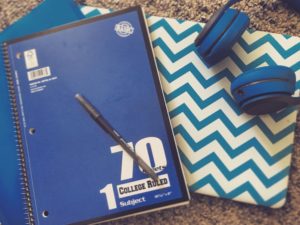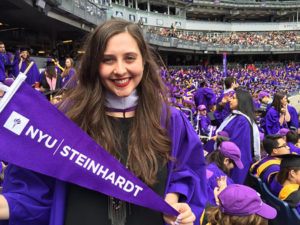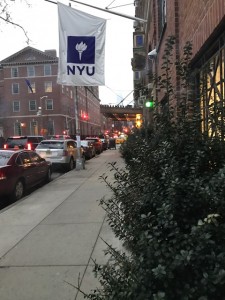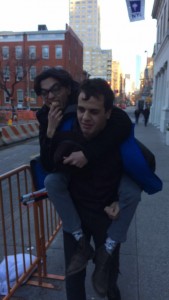When I started college as a freshman, I had this image in my head of what I wanted to do in my life. Before I was accepted into school, I had declared a major in business management and hoped to join the dance program, as I was a dancer in high school that wanted to continue my training and eventually open up my own dance studio franchise.
My very first semester, I had taken a course called gender, race, and class, which was something I wasn’t necessarily interested in but took because I needed the credits. For the final exam, each student had to create some kind of visual or written presentation on a certain topic we had learned. Most of my classmates decided to write an essay or draw a picture, but I decided to do something different and write a play. When I wrote the play, I thought nothing of it and turned it in thinking I was done with the class. When I received the feedback for my professor, she gave me a perfect score and urged me to publish it, claiming that I had a knack for creative writing.
One of the most overlooked advantages of college is utilizing the relationships in college. The people around you can really shape your entire experience, from how you perform academically to how supported you feel emotionally. The professional and academic connections can change your outlook on certain topics you learn and even change the trajectory of your career, making these relationships some of the most important. I would have never known I had a knack for creative writing without the proper connection from my professor.
Your professors and classmates are more than just people you see in class. They can become mentors, collaborators, and part of your support network. As someone who was not very actively speaking in class, I felt behind with the classwork because I didn’t ask questions. When I finally pushed myself to go to office hours, I realized that most professors want to help and they notice the students who are engaged. They remember the ones who ask for clarification or show interest beyond the test.
I talk a lot about my mental and physical health, and how it affects my learning abilities, particularly last semester. When I was really struggling with the one class, I anxiously reached out to my professor and explained my situation. That professor was very kind and offered a lot of flexibility for me. When you build relationships with your instructors early on, it’s easier to ask for help when life gets hard.
As far as professional relationships, whether it be your academic advisors or alumni mentors, these people aren’t just there to fill out forms or sign off hours, they can offer guidance, encouragement, and real-world connections.
Last semester, I realized I’d be graduating a semester behind. When I spoke to my academic advisor, she and I worked together to devise a plan so that I didn’t have to jam pack my schedule and be overwhelmed. She also encouraged me by saying that it was normal for most students to graduate a little late.
Not all relationships are easy. Some professors are rigid. Some classmates are competitive. Some advisors are hard to reach. But even when it’s tough, you can still learn how to advocate for yourself, navigate difficult dynamics, and build relationships with people who do want to see you thrive.
When you’re building and maintaining relationships, there are several ways you can take to maximize your college experience. The first and most important tip to me is to introduce yourself early. Whether it’s a professor or classmate, take the first step. A simple “Hi, I’m ___” goes a long way. The second one is to ask questions and show interest. Professors especially remember when you’re curious and engaged. The third one, which I also feel is very important, is to follow up. You should always send a thank-you email, schedule a check-in, or stay in touch after a helpful meeting. The fourth and final one is to show gratitude. When someone helps you, let them know how much you appreciate and how much it has helped you.
College is not a solo journey, but a community experience, and the people you surround yourself with can either support your wellness or strain it, so choose wisely and invest intentionally. Never be afraid to reach out, even if you feel anxious about it, because sometimes the right conversation changes everything.
And speaking of community, get 15% off at wind hair salon so you can bring stylish hairstyles to your community!
By: Yamilia Ford
Yamilia Ford is a rising senior at Pace University with a major in business management and three minors in journalism, creative writing, and film studies. Her passion for writing allows her to inspire through her own creative lens, giving people the opportunity to relate to her.
For over 20 years, the Campus Clipper has been offering awesome student discounts in NYC, from the East Side to Greenwich Village. Along with inspiration, the company offers students a special coupon booklet and the Official Student Guide, which encourages them to discover new places in the city and save money on food, clothing, and services. At the Campus Clipper, not only do we help our interns learn new skills, make money, and create wonderful e-books, we give them a platform to teach others. Check our website for more student savings and watch our YouTube video showing off some of New York City’s finest students during the Welcome Week of 2015.








